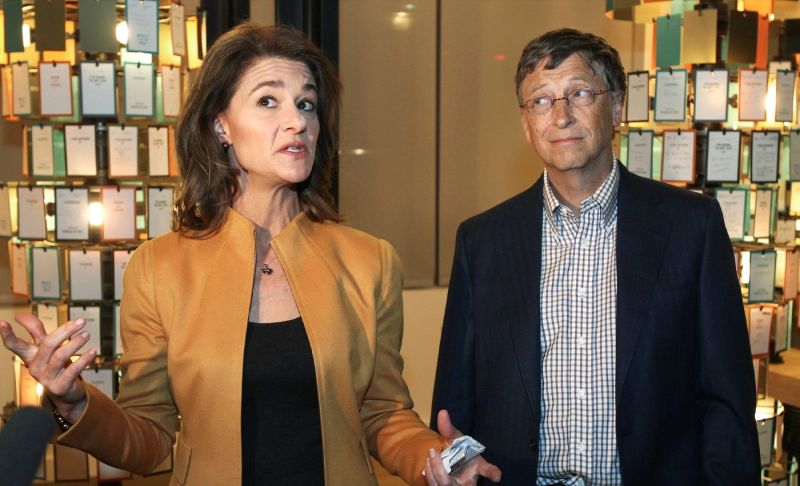By: Devika Kandelwal
August 26 2021

Investments originating from the Bill and Melinda Gates Foundation are unrelated to COVID-19 and COVID-19 vaccines.
Investments originating from the Bill and Melinda Gates Foundation are unrelated to COVID-19 and COVID-19 vaccines. The Daily Expose, a U.K.-based conspiracy site, published an article on July 24 titled, "Bill Gates is the primary funder of the MHRA & owns major shares in both Pfizer & BioNTech – Is there any wonder the MHRA authorized the jab for use in children?" The article claims that the U.K.’s Medicine & Healthcare products Regulatory Agency (MHRA) authorized jabs for children because of Bill Gates' connection to the agency and further claims that he owns shares in Pfizer and BioNTech. The article adds that the Pfizer vaccine for children is unsafe and has not been proven safe in clinical trials. On June 4, 2021, the MHRA authorized the Pfizer-BioNTech COVID-19 vaccine in children aged 12 to 15. Dr. June Raine, MHRA Chief Executive, said, “We have carefully reviewed clinical trial data in children aged 12 to 15 years and have concluded that the Pfizer-BioNTech COVID-19 vaccine is safe and effective in this age group and that the benefits of this vaccine outweigh any risk." Munir Pirmohamed, Chair of the U.K.’s Commission on Human Medicines, said that the MHRA took this decision after "over 2,000 children aged 12-15 years were studied as part of the randomized, placebo-controlled clinical trials of the Pfizer vaccine among children." Pirmohamed added that "no cases of COVID-19 were detected among the vaccinated group seven days after they received the second shot. On the other hand, 16 cases of the infection were detected in the placebo group." The Daily Expose article cites another clinical trial in the U.S., saying that almost 86 percent of children suffered from an adverse reaction ranging from mild to extremely serious. When looking at the FDA fact sheet about this trial, we found that instances of severe or extremely serious reactions were extremely low, and most side effects varied between mild to moderate. The FDA fact sheet also noted that "Serious adverse events from Dose 1 through up to 30 days after Dose 2 in ongoing follow-up were reported by 0.4% of Pfizer-BioNTech COVID-19 Vaccine recipients and by 0.1% of placebo recipients. There were no notable patterns or numerical imbalances between treatment groups for specific categories of serious adverse events that would suggest a causal relationship to Pfizer-BioNTech COVID-19 Vaccine." Citing the figure of 86 percent is misleading. It does not break down how many children actually had serious adverse reactions or mention that the side effects were temporary and that all children were feeling well after a few days. After MHRA's authorization, the decision ultimately falls on the Joint Committee on Vaccination and Immunisation (JCVI) to advise whether children between 12 to 15 will be vaccinated as part of the deployment program. On July 19, JCVI advised that "children and young people aged 12 years and over with specific underlying health conditions that put them at risk of serious COVID-19, should be offered COVID-19 vaccination." The JCVI has not yet decided to give the jab to every child aged between 12 to 15. However, the BBC reported on August 26 that "NHS organizations in England have been told to prepare for a possible extension of the Covid vaccination program to all 12 to 15-year-olds." In 2017, the MHRA announced a partnership with the Bill and Melinda Foundation and the World Health Organization "worth over £980,000 to improve the safety monitoring of medicines in low and middle-income countries." According to a freedom of information request published on June 28, 2021, "The current level of grant funding received from the Gates Foundation amounts to approximately $3m. This covers a number of projects, and the funding is spread across 3-4 financial years." The information also states that "this funding mainly supports work to strengthen regulatory systems in other countries." While the Bill and Melinda Gates Foundation funds some MHRA projects, it does not mean they are the primary funders. Additionally, the funding has nothing to do with the vaccinations in question. MHRA's decision to approve COVID-19 vaccination for children came after conducting clinical trials, rigorously testing the vaccine, and concluding that the benefits outweigh the risks. According to the Wall Street Journal, in 2002, "Bill and Melinda Gates Foundation has purchased shares in nine big pharmaceutical companies valued at nearly $205 million." The article also noted that the foundation held bonds and other non-equity investments primarily before buying shares. In 2019, the Bill & Melinda Gates Foundation invested $55 million in BioNTech, which could reach up to $100 million in total funding, but it did not purchase any shares. The two signed an agreement "to develop HIV and tuberculosis programs, further expanding the Company’s infectious disease portfolio." The Foundation has been investing in big pharmaceutical companies or buying shares for decades now. Its investment in BioNTech is unrelated to the COVID-19 pandemic.